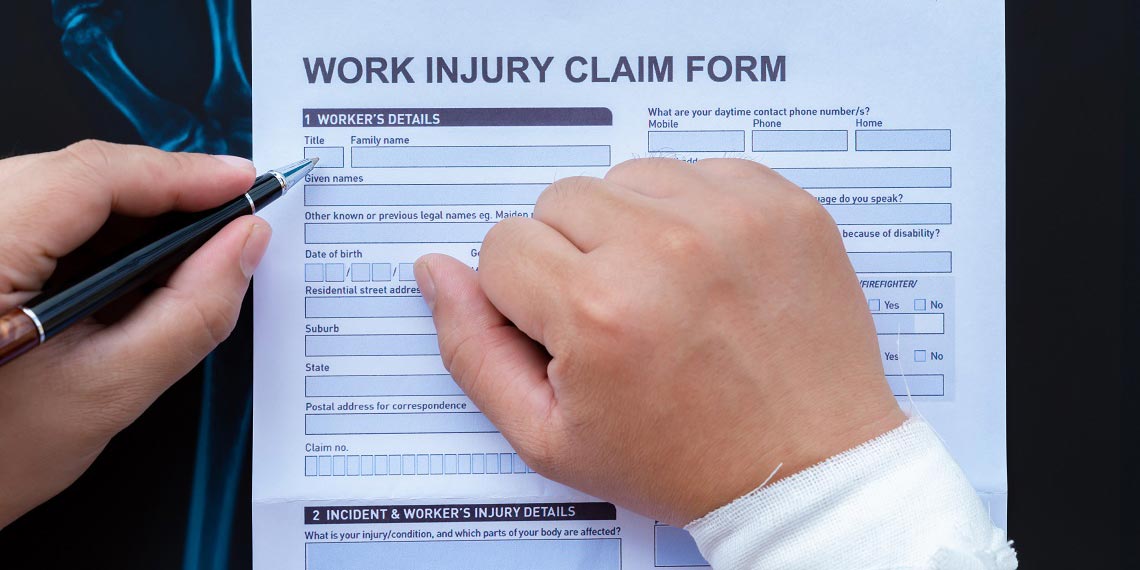If you’ve been injured on the job or developed a medical condition that prevents you from working, the path to securing financial support can be confusing. Between disability benefits and workers’ compensation, there are different programs and processes, each with its own requirements. Understanding the nuances between these two systems is key to ensuring you receive the help you need.
In this guide, we’ll walk you through the essentials of disability benefits and workers’ compensation, breaking down the steps to take, your rights, and tips to navigate the claims process.
Understanding the Difference Between Disability Benefits and Workers’ Compensation
Before diving into the specifics, it’s crucial to differentiate between disability benefits and workers’ compensation. While both provide financial assistance, they apply to different situations and have unique qualifications. Workers’ compensation is designed for job-related injuries or illnesses, whereas disability benefits cover a wider range of conditions that may not necessarily be work-related. For more insights and to find trusted professionals who can guide you through the process, check out the Golden State Workers Compensation Attorneys reviews to learn from the experiences of others.
Workers’ compensation is specifically designed for employees who are injured or become ill as a direct result of their job. In contrast, disability benefits are for those who are unable to work due to a medical condition, regardless of whether it’s work-related or not.
Key Differences:
- Workers’ Compensation: Covers job-related injuries or illnesses.
- Disability Benefits: Apply to any medical condition that prevents you from working, not just work-related incidents.
Fun fact: Workers’ compensation dates back to ancient Sumeria (around 2050 BC), where compensation was awarded for specific injuries, such as a lost eye or hand.
Filing for Workers’ Compensation: A Step-by-Step Guide
When you’re injured on the job, the first step is filing a workers’ compensation claim. This process ensures that you can receive financial compensation for medical expenses, lost wages, and rehabilitation services. Acting quickly is critical to avoid delays or denial of your claim.
How to File a Workers’ Compensation Claim:
- Report the Injury Immediately: Notify your employer as soon as the injury occurs. Most states have strict deadlines, often within 30 days.
- Seek Medical Attention: Make sure your injury is properly documented by a healthcare professional. In many cases, your employer may require you to see a company-approved doctor.
- Complete and Submit the Claim: Your employer will provide you with the necessary forms to file a workers’ compensation claim. Be thorough and accurate in your description of the injury.
- Follow Up Regularly: Stay on top of your claim by checking in with your employer or insurance company. Sometimes, claims can get lost in the shuffle, so persistence is key.
What You Can Expect from Workers’ Compensation:
- Medical Coverage: All reasonable and necessary medical treatment related to your work injury is covered.
- Wage Replacement: If you’re unable to work, you may receive temporary or permanent disability payments.
- Rehabilitation: In some cases, workers’ compensation provides vocational training if you can’t return to your previous job.
Navigating the Disability Benefits System
Unlike workers’ compensation, disability benefits are available to those with any medical condition that prevents them from working. This might include chronic illnesses, severe injuries, or mental health conditions. Disability benefits fall under two main programs: Social Security Disability Insurance (SSDI) and Supplemental Security Income (SSI).
The Two Main Types of Disability Benefits:
- SSDI: This program is for people who have worked and paid into the Social Security system but are now disabled and unable to continue working.
- SSI: SSI provides financial assistance to those with limited income and resources, regardless of their work history, who are also disabled.
How to Apply for Disability Benefits:
- Gather Medical Documentation: Just like with workers’ compensation, the success of your claim depends on comprehensive medical evidence. Make sure your doctors clearly document your condition and limitations.
- Complete the Application: You can apply for disability benefits online or at a local Social Security office. The application asks for detailed information about your work history, medical condition, and treatment.
- Prepare for a Waiting Period: Unlike workers’ compensation, which may start paying benefits relatively quickly, disability claims can take several months to process. Be prepared for the possibility of waiting up to six months or more.
- Appeal If Necessary: Many disability claims are denied initially, so don’t be discouraged if this happens. You can appeal the decision and, in some cases, even take your claim to court.
Pro tip: Studies show that about 67% of disability claims are denied the first time around. Don’t lose hope—appeals often lead to successful outcomes.
Key Rights You Should Know About
Both workers’ compensation and disability benefits come with important legal protections. Understanding your rights helps you avoid getting taken advantage of and ensures you receive the full benefits you’re entitled to. If you’re unsure about your rights or need legal assistance, visiting http://workerscompensationlawyercalifornia.com can provide valuable information and connect you with experts who can help you navigate the claims process.
Rights Under Workers’ Compensation:
- Right to Medical Treatment: You have the right to receive necessary medical care without out-of-pocket expenses.
- Right to File a Claim: Your employer cannot legally retaliate against you for filing a workers’ compensation claim.
- Right to Disability Payments: If your injury prevents you from working, you have the right to receive compensation for lost wages.
Rights Under Disability Benefits:
- Right to Appeal: If your disability claim is denied, you have the right to appeal the decision.
- Right to Representation: You can have legal representation during the disability benefits application or appeal process.
- Right to Fair Consideration: Disability determinations must be based on medical evidence, not arbitrary decisions.
When to Seek Legal Help
Workers’ compensation and disability benefits can be complicated to navigate, especially if your claim is denied or delayed. In these cases, consulting with an attorney who specializes in these areas can help protect your rights and improve your chances of success.
Reasons to Hire an Attorney:
- Complex Claims: If your injury is severe or your disability involves a complicated medical condition, an attorney can help ensure your claim is handled correctly.
- Claim Denials: A lawyer can assist with appealing denied claims, gathering additional evidence, and representing you in court if needed.
- Maximizing Benefits: Attorneys often have the expertise to help you secure higher settlements or more comprehensive benefits than you might on your own.
Fun fact: Studies show that individuals who hire attorneys for workers’ compensation and disability claims are significantly more likely to receive benefits than those who go it alone.
Final Thoughts: Understanding Your Path to Financial Support
Whether you’re dealing with an injury that happened on the job or a condition that has left you unable to work, understanding the ins and outs of workers’ compensation and disability benefits is essential to securing the help you need. By following these steps and knowing your rights, you can navigate the system more smoothly and get back on the road to recovery.
Also Read: Adapting to Change: The A2L Refrigerant Shift and the Rise of Advanced Technical Ceramics.

















